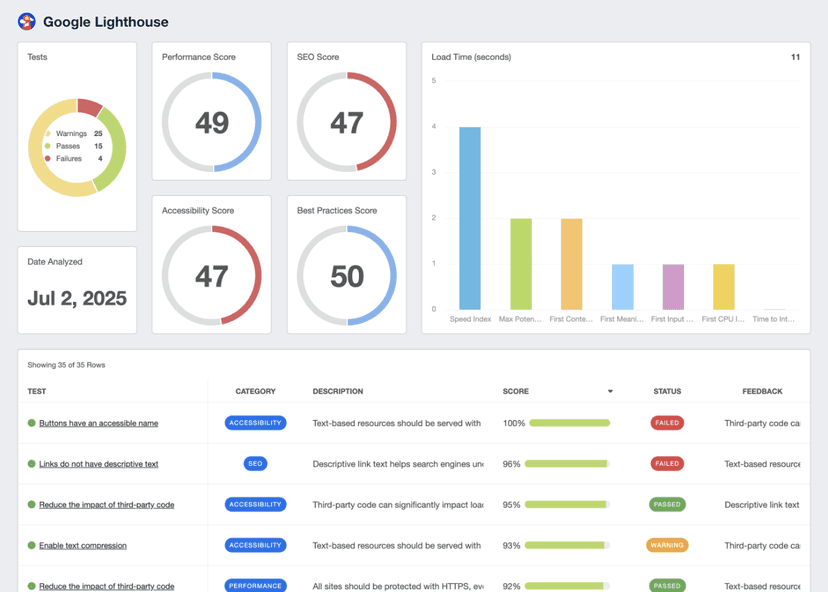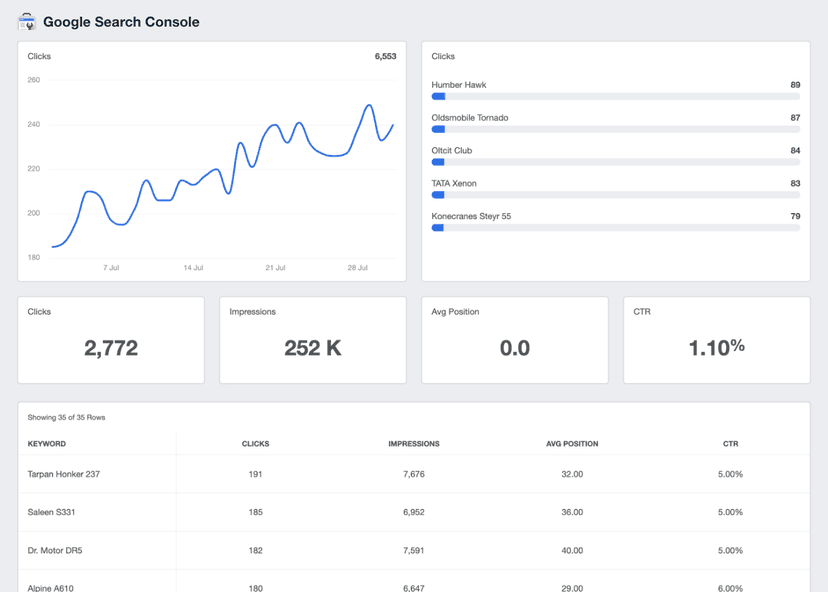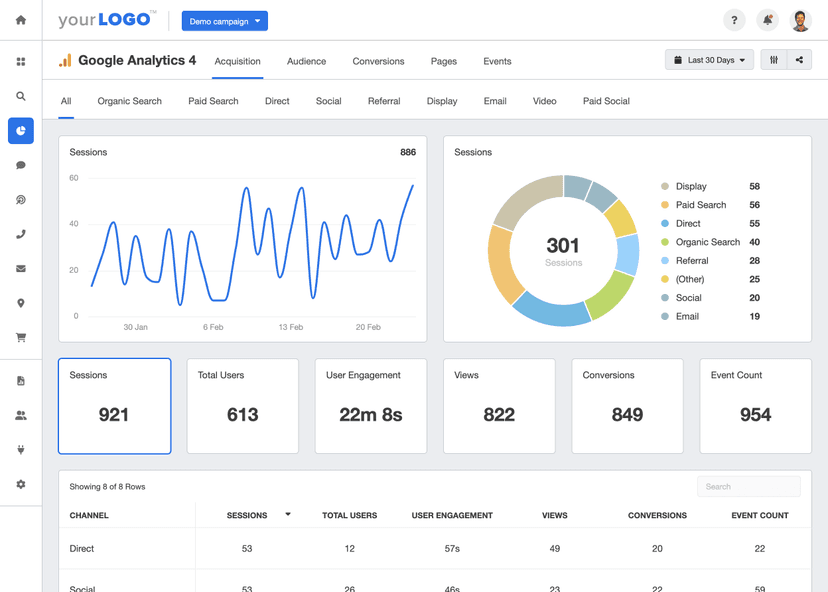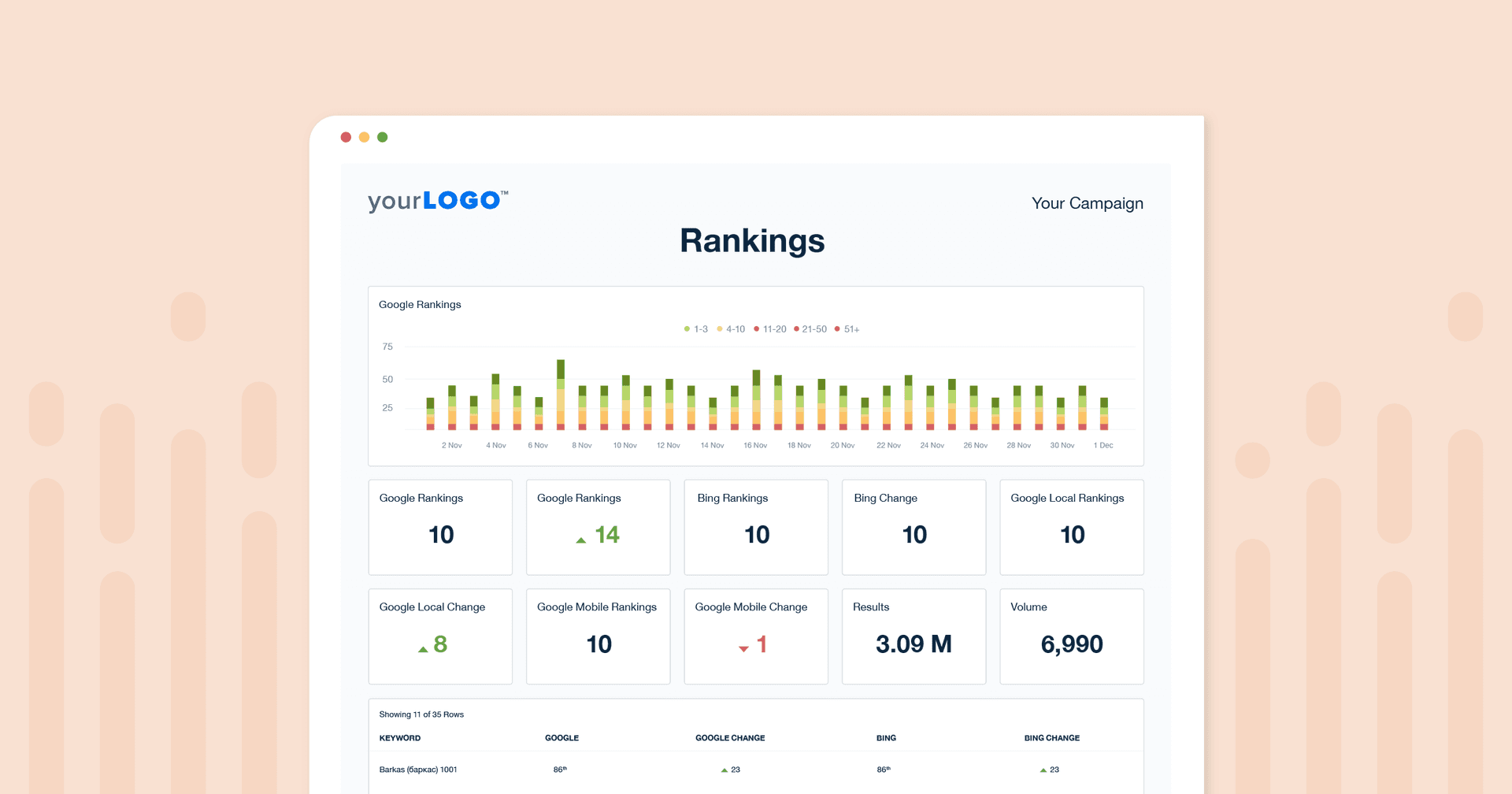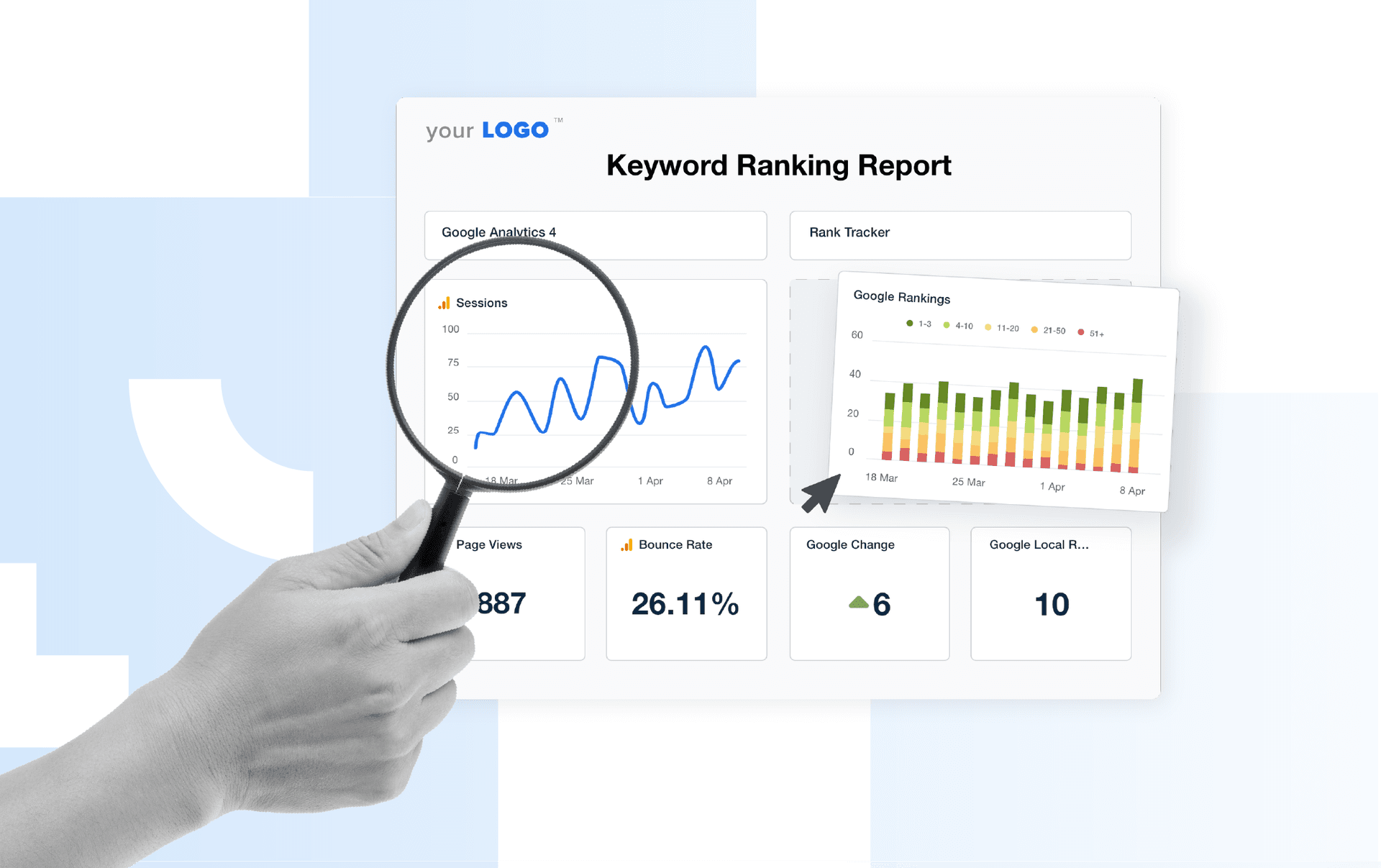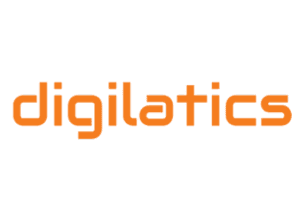Keyword Ranking
Content Optimization
Adjusting website content to improve ranking for targeted keywords.
Strategy Refinement
Using ranking data to refine and adapt overall SEO strategies.
Competitor Analysis
Comparing rankings to identify competitive strengths and weaknesses.
ROI Communication
Showcasing ranking improvements in client reports to demonstrate value.
Why Keyword Ranking Is Important
Keyword Ranking is a vital metric for assessing the effectiveness of search engine optimization (SEO) efforts. It provides concrete evidence of how well a website's content aligns with search queries.
High rankings for a particular keyword indicate strong relevance and visibility, making a website more likely to be visited by potential customers. This is particularly crucial in competitive markets, where a top position significantly impacts traffic and brand recognition.
Tracking Keyword Ranking helps in identifying SEO opportunities and challenges. It also enables marketers to pinpoint which keywords are performing well and which require more focus. This metric acts as a direct feedback loop, informing content strategy and optimization efforts.
By closely monitoring Keyword Ranking, marketers make data-driven decisions, ensuring that their efforts align with the search engine algorithms and user behavior.
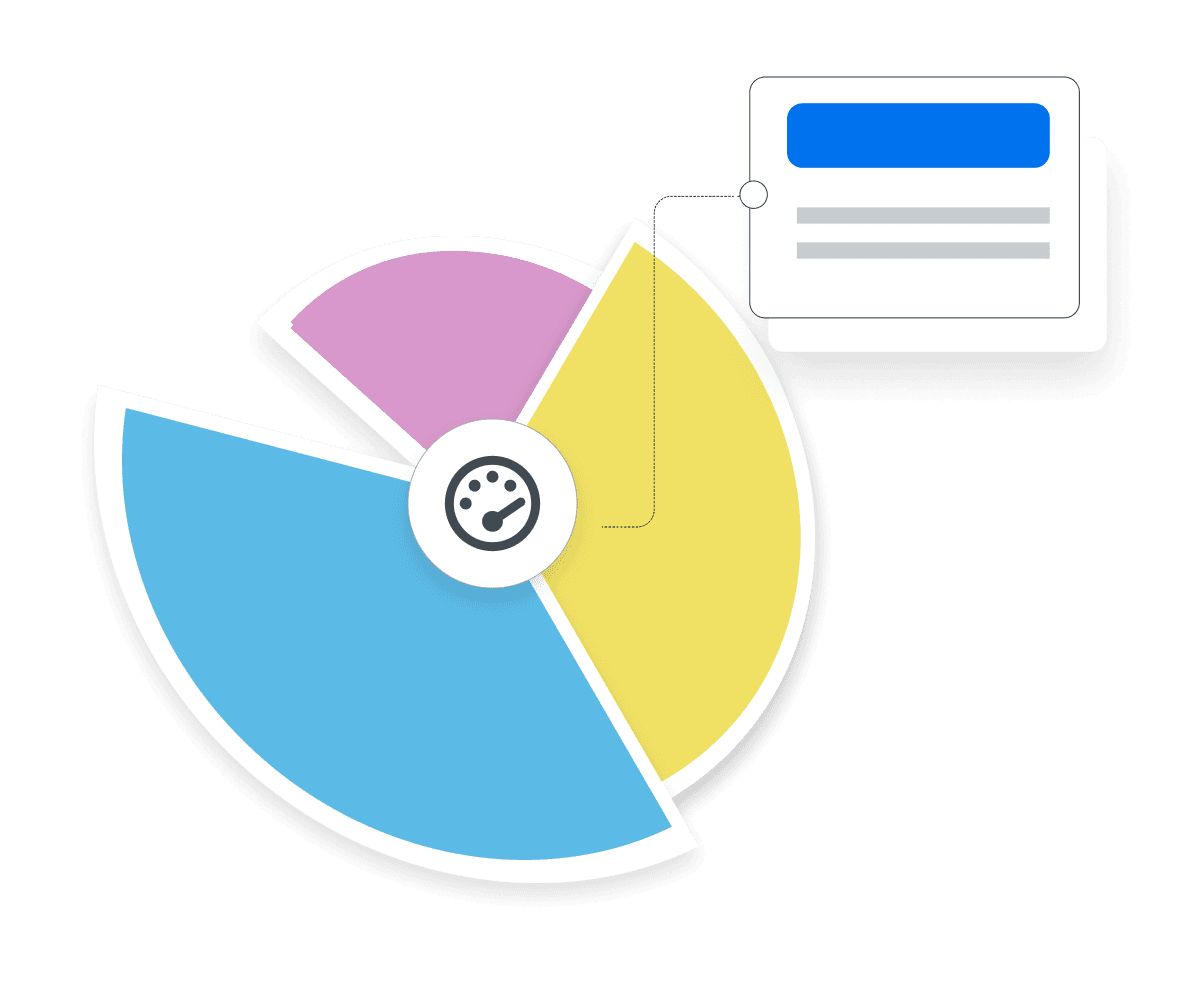
Stop Wasting Time on Manual Reports... Get SEO Insights Faster With AgencyAnalytics
How Keyword Rankings Relate To Other KPIs
Keyword Ranking interacts with various other Key Performance Indicators (KPIs), forming a complete view of marketing campaign success. For example, a strong correlation often exists between Keyword Ranking and Organic Traffic. As rankings improve, there's typically an uptick in website visits, indicating heightened visibility and reach. This relationship underscores the importance of targeting relevant, high-search-volume keywords to drive meaningful traffic.
Keyword Ranking also ties closely with Conversion Rate. A higher ranking for targeted keywords generally leads to increased quality traffic, which boosts the likelihood of conversions. This interplay highlights the need for a dual focus on both ranking and optimizing the user experience to effectively convert visitors.
Additionally, Click-Through Rate (CTR) is influenced by rankings. Top positions on search engine results pages usually garner higher CTRs, emphasizing the significance of both ranking high and crafting compelling meta titles and descriptions. Understanding these connected metrics allows agencies and clients to craft more effective, comprehensive strategies that address multiple aspects of online performance.
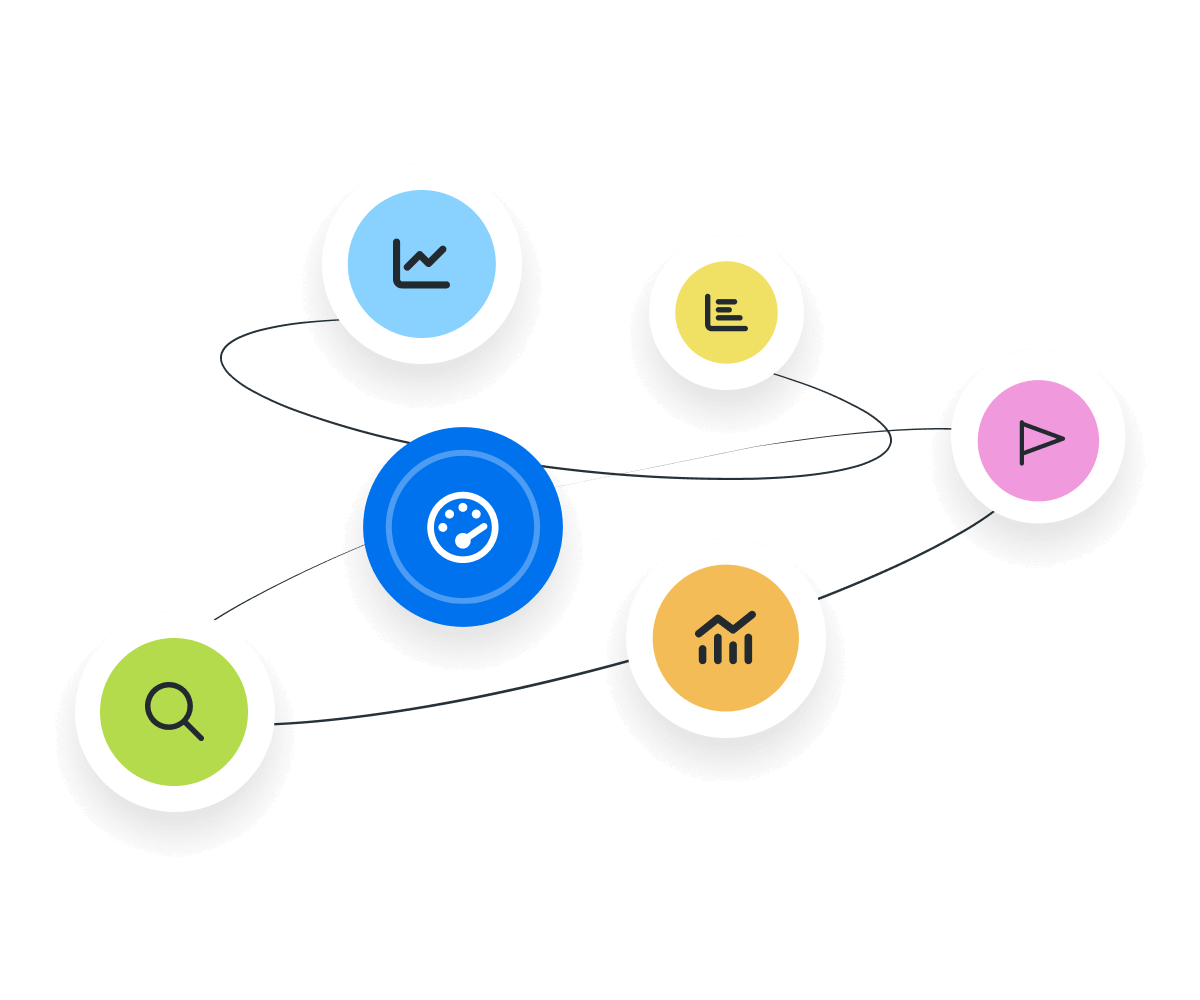
How Keyword Research Improves Search Engine Ranking
In the world of Google keyword rankings, the position a website holds for specific SEO keywords determines its accessibility to potential visitors. High keyword ranking positions signal that a website's content resonates well with user search intent, a primary factor in driving organic traffic.
To improve keyword rankings, research is imperative. It helps brainstorm keyword variations, keyword ideas, related keywords, and new search terms. Don’t forget to analyze how competitors rank for similar keywords to get valuable insights into their strategies and identify potential gaps. Using a position tracking tool helps track keyword rankings, creates a keyword list to target, and provides a rankings overview to ensure a specific website is getting the most traffic.
Be sure to avoid keyword stuffing or using certain keywords that look like clickbait, as it often leads to a Google penalty. Instead, the focus should be on creating content that naturally incorporates keywords while providing value to the reader.
Diversify research focus to include other keywords and consider the ranking criteria of other search engines to broaden a website's reach and enhance its overall SEO performance.
Keyword Rankings and organic traffic growth are critical KPIs, but what we’re really measuring on is our ability to create bottom-line dollars for the business. We measure this using Keyword Rank tracking, Google Analytics, Call Tracking, and form tracking and report it in an accessible dashboard using AgencyAnalytics.
How To Measure Keyword Ranking
To measure Keyword Ranking, start by selecting the target keywords. Then, utilize SEO tools to check the position of these keywords in Search Engine Results Pages (SERPs). Regular monitoring of these positions provides insights into SEO strategy effectiveness. The key is consistency in measurement to track progress accurately over time.
What Is a Good Average Keyword Ranking?
A good average keyword ranking typically falls within the top 10 search results or the first page of search engines like Google. This high visibility significantly increases the likelihood of clicks and website traffic.
Achieving and maintaining a position in the top 10 is often associated with well-optimized SEO keyword rankings. It's a clear indicator that the content has all the keywords that resonate well with both the target audience and search engine algorithms.
What Is a Bad Average Keyword Ranking?
A bad average keyword ranking is usually beyond the first 30 search results or the third page of search engines. Rankings this low indicate that the website's content is not effectively optimized or relevant enough for the right keywords.
This position often leads to minimal visibility, significantly reducing the chances of attracting organic traffic. It suggests a need for revising content and SEO strategies to improve relevance and alignment with search trends.
How To Set Keyword Ranking Benchmarks and Goals
In cases where common benchmarks are not applicable, agencies set their own benchmarks using historical data, competitive analysis, and specific business goals. Analyzing past performance data helps in understanding what rankings have been achievable and beneficial in the past.
Additionally, considering the rankings of direct competitors provides a realistic target range. Agencies also back-calculate the required keyword ranking to meet specific business objectives like revenue targets, aligning SEO efforts with broader business strategies.
Granular Insights
To gain more granular insights into keyword ranking, it's important to segment data based on factors like geographical location, device type, and search intent. This segmentation allows for a more nuanced understanding of how different audiences interact with the content.
Tracking changes in rankings over time and correlating them with updates in content or SEO tactics gives deeper insights into what strategies are most effective. This approach helps create a more targeted and responsive SEO strategy.
Why Keyword Ranking Matters to Clients
From a client's perspective, Keyword Ranking is a pivotal metric as it directly impacts online visibility and business growth. A strong ranking means higher visibility in search engine results, which translates to increased organic traffic. For clients, this traffic goes beyond a simple number. This traffic is seen as potential customers discovering their products or services.
High keyword rankings also enhance brand credibility and authority, as top positions are often perceived as endorsements of quality and relevance by search engines. Essentially, for clients, this metric is a gauge of market presence and an indicator of how effectively their brand connects with the target audience through search queries.
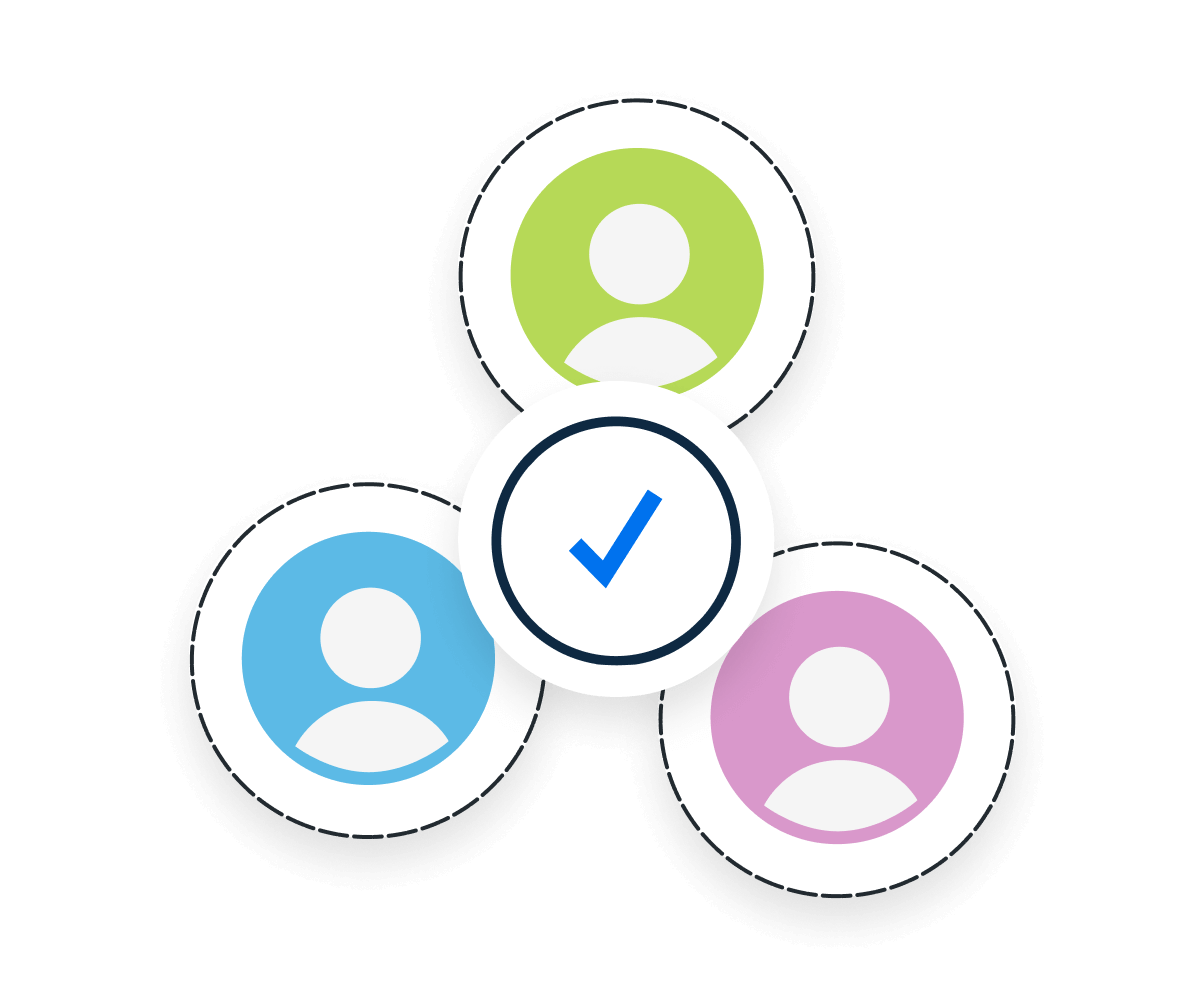
Why Keyword Ranking Matters to Agencies
For marketing agencies, Keyword Ranking is a vital metric for demonstrating SEO expertise and campaign effectiveness. Agencies use this metric to showcase their ability to enhance a client's digital presence and competitive edge. High rankings are tangible evidence of successful SEO strategies, reflecting an agency's proficiency in understanding and leveraging search engine algorithms.
This metric also helps agencies in strategic decision-making, identifying which keywords and content strategies yield the best results. Maintaining or improving keyword rankings is a continuous challenge that keeps agencies at the forefront of SEO trends and practices, ensuring they offer the most current and effective solutions to their clients. Streamline your client's keyword ranking report with our template.

Save Time and Money by Automating Your Client Reporting
Best Practices When Analyzing and Reporting on Keyword Ranking
By examining Keyword Ranking through various lenses, marketers gain insights into the effectiveness of their SEO tactics, understand audience behavior, and identify areas for improvement. This multifaceted approach ensures that advertising efforts are aligned with current market trends and capitalize on emerging opportunities.
Ensure Data Accuracy
Ensure the use of reliable SEO tools and regularly validate data against multiple sources. Consistency in data collection methods is key to maintaining the integrity of Keyword Ranking information, providing a solid foundation for strategic decisions.
Analyze Keyword Ranking Over Time
Monitor Keyword Ranking continuously to identify trends and patterns. This long-term view helps in understanding the sustainability of SEO strategies and the impact of external factors like algorithm updates or competitive shifts.
Put Keyword Ranking in Context
Place Keyword Ranking within the broader context of overall marketing objectives and industry benchmarks. Understanding where a brand stands in their respective industry helps in setting realistic goals and strategies for improvement.
Interpret Trends and Anomalies
Scrutinize fluctuations and unusual changes in Keyword Ranking. Understanding these variations reveals insights into user behavior changes, market dynamics, or SEO strategy effectiveness, guiding future optimization efforts.
Align Keyword Ranking to Client Goals
Ensure that Keyword Ranking goals align with client-specific objectives. Tailoring strategies to meet these goals ensures that efforts are successful in terms of SEO and also contribute to the client's broader business aspirations.
Include Actionable Recommendations
Provide actionable recommendations based on Keyword Ranking analysis. Highlight areas for improvement, potential opportunities, and strategic adjustments to enhance the effectiveness of SEO efforts and meet targeted goals.
Keyword ranking is usually the most impactful and clients want to see this number continually moving up, or remaining steady in a high position. We use this through the AgencyAnalytics Rank Tracker tool.
FAQs About Keyword Rankings and SEO Performance
Looking to go beyond basic keyword reports? These FAQs break down how to interpret ranking data, optimize for search intent, and combine tools like Google Search Console with advanced keyword ranking tools to track SEO results more effectively.
Search intent (informational, navigational, or transactional) guides which target keywords a site should prioritize. Aligning content with a user’s search intent improves relevancy, which boosts SEO performance. That optimization leads to stronger ranking positions or a search engine results page and organic traffic gains.
Featured snippets, local packs, and other SERP features change how rankings appear. A keyword might rank lower in average position but still appear in a featured snippet or as a quick answer—offering strong visibility. Agencies must track both traditional ranking position and featured placement to paint a complete view of performance.
Free keyword rank checker tools like Search Console provide basic insights, but they often lack granular data. Combine them with a paid keyword ranking tool that tracks rankings in real time, across platforms, and the same keywords by location. This blended approach balances budget with accurate, automated tracking of target keyword performance.
Average position shows how well the site ranks across tracked terms—useful for prioritizing specific keywords. Monitoring the number of keywords ranking offers insight into content reach. Agencies gain context by using both: a strong average position with few keywords might signal narrow optimization, while many ranking terms with poor average position suggest a broader but shallow impact.
Google Search Console offers insight into how specific keywords perform in search results (impressions, average position, click-through rate). Agencies can cross-reference these metrics with rank tracker data to ensure consistency and validate visibility trends in search engine results pages (SERPs).
Google algorithm updates regularly shift how search engine results pages are evaluated. A keyword ranking might drop even if the page hasn’t changed—especially for particular keywords tied to outdated content or mismatched search intent. Agencies should use keyword tracking tools and Google Search Console to monitor fluctuations and adjust SEO campaigns accordingly.
Fluctuations in ranking position are often influenced by external factors: competitor sites updating content, featured snippets changing, or Google’s algorithm reinterpreting user searches. Agencies should avoid reacting to every drop and instead look at weekly ranking updates and average position trends in context.
Short-tail keywords are broad, high-volume search terms like “CRM software,” which are competitive and harder to rank for. Long-tail keywords are more specific, such as “best CRM software for small agencies,” and often reflect clearer search intent. While short-tail terms improve brand visibility, long-tail keywords typically drive more high-intent traffic and conversions. A strong SEO campaign targets both using keyword research tools to balance reach and relevance.
Rank Tracking Dashboard Example
Related Integrations
How To Improve Keyword Ranking
Improving Keyword Ranking is pivotal for SEO success. These actionable tips offer unique strategies to elevate a website's visibility in search engine results, directly impacting traffic and engagement.
Craft Compelling Content
Focus on creating high-quality, relevant content that addresses the needs and interests of the target audience. Ensure it's informative, engaging, and updated regularly. High-quality content naturally attracts backlinks, which significantly boosts rankings.
Utilize Keyword Research
Conduct thorough keyword research to identify terms the audience is searching for. Use long-tail keywords to target specific queries. Incorporating these keywords naturally into the content improves relevance and search engine rankings.
Build Quality Backlinks
Focus on acquiring backlinks from reputable, authoritative websites. These links act as endorsements for the content, boosting its credibility and ranking. Avoid spammy links as they may harm the site's reputation.
Related Blog Posts
See how 7,000+ marketing agencies help clients win
Free 14-day trial. No credit card required.


